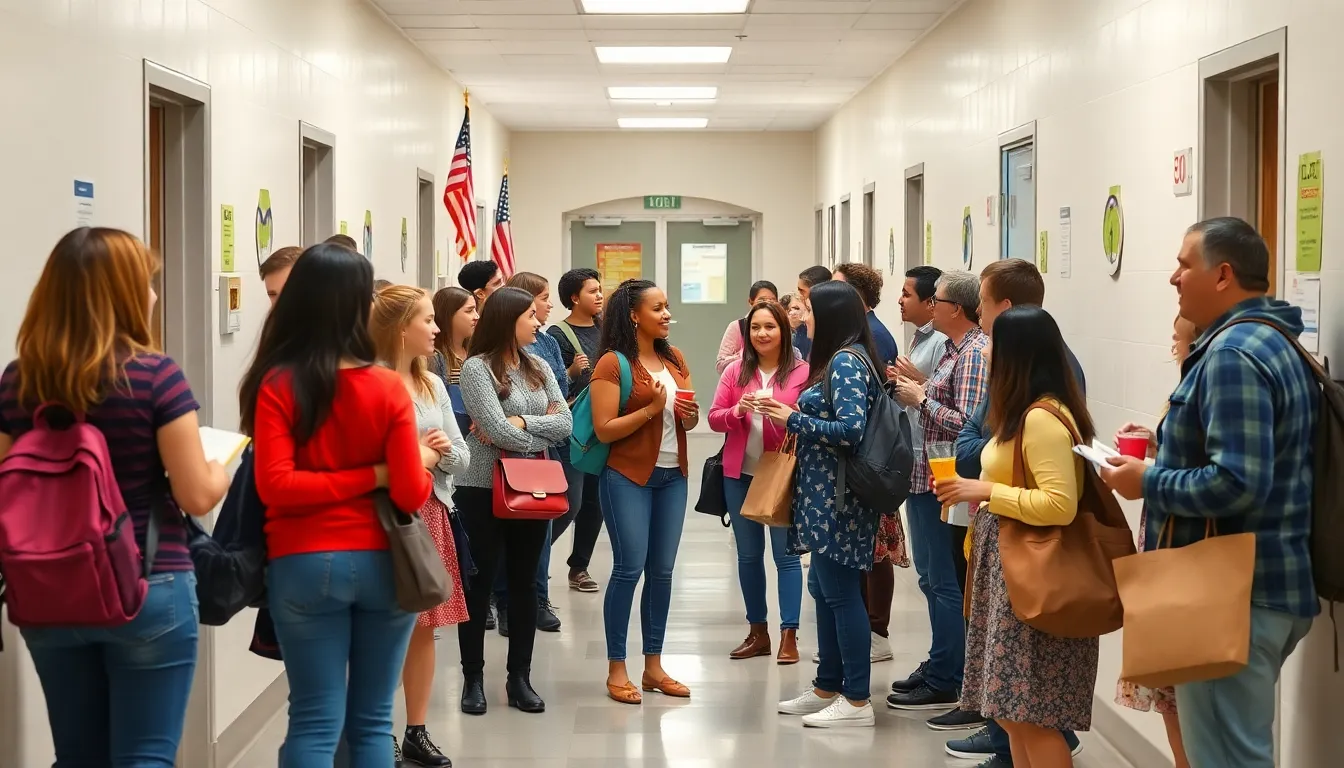When it comes to education, family involvement is like the secret sauce that takes a dish from bland to grand. It’s not just about parents attending school meetings or signing report cards; it’s about creating a dynamic partnership that boosts student success and keeps the learning experience spicy. Imagine a world where families and schools work hand in hand, transforming the educational journey into a thrilling adventure rather than a monotonous trek.
Involving families in education isn’t just a nice-to-have; it’s a game changer. Research shows that when families engage, students thrive academically and socially. So why not turn those dinner table chats into brainstorming sessions about homework or school projects? By fostering a culture of collaboration, families can help students unlock their potential while having a little fun along the way. After all, who said education can’t be a family affair filled with laughter and learning?
Table of Contents
ToggleImportance Of Family Involvement In Education
Family involvement in education significantly impacts student outcomes. Engaged families create strong support systems that enhance learning opportunities.
Improved Student Performance
Active family participation leads to better student performance. According to research, students with involved families score higher on standardized tests. They also achieve better grades overall. Involvement includes helping with homework, attending meetings, and communicating regularly with teachers. Such interactions create an environment of accountability and encouragement. Schools benefit from this partnership, as families provide insights into student needs. Improved academic performance correlates with increased family engagement.
Enhanced Social Skills
Family involvement also fosters enhanced social skills in students. Engaged families model effective communication and problem-solving techniques. Children learn to interact positively with peers and adults alike. Participation in school events provides opportunities for social interaction. It encourages collaboration and teamwork. Positive family interactions enhance self-esteem and confidence in children. Thus, social skills develop more fully when families actively engage in their educational journey.
Types Of Family Involvement

Family involvement in education can take many forms, each playing a vital role in enhancing student success. Engaging in specific activities fosters a strong connection between home and school.
Parent-Teacher Communication
Effective communication between parents and teachers creates a supportive environment for students. Regular updates on academic progress allow families to stay informed. Parents can discuss concerns or achievements with teachers, fostering a collaborative approach to education. Tools such as emails, phone calls, or newsletters facilitate this connection. Open lines of communication encourage mutual understanding and help address challenges promptly. It’s beneficial for families to ask questions about curriculum and expectations to boost student engagement.
School Events and Activities
Participation in school events strengthens family ties to the educational community. Parents attending events, such as parent-teacher conferences or workshops, actively demonstrate support for their child’s education. Engaging in school activities, like volunteer opportunities or fundraisers, enhances the school’s resources. Families connecting with teachers and fellow parents during these events can build a network of support. Schools often appreciate the involvement of families, as it raises morale and encourages a positive atmosphere for learning. Consistent participation sends a powerful message about the importance of education.
Strategies For Encouraging Family Involvement
Families play a vital role in enhancing educational experiences through various strategies. Creating a welcoming environment and utilizing technology effectively are essential components in fostering engagement.
Creating a Welcoming Environment
A welcoming school environment invites family participation. Schools can organize open house events that showcase academic programs and encourage interactions between educators and families. Inviting families to share cultural backgrounds fosters inclusivity and allows diverse perspectives in the educational space. Schools can also establish family resource centers that provide information on academic resources, parenting workshops, and other relevant activities. Building relationships between teachers and families through regular communication promotes trust and collaboration. Ensuring visible and accessible areas for families during school events allows for engagement in activities and discussions.
Utilizing Technology for Engagement
Technology enhances family involvement in education. Schools can implement communication platforms that facilitate direct messaging between teachers and families, ensuring everyone stays informed on student progress. Virtual meetings enable participation from parents who may not be able to attend in person. Online calendars and updates on school events help families plan and engage in educational activities. Using educational apps that allow parents to track homework and assignments promotes accountability. Social media can serve as a tool for sharing successes, announcements, and resources, helping families feel more connected to the school community. Engaging families digitally supports ongoing communication and strengthens educational partnerships.
Challenges To Family Involvement
Family involvement faces various challenges that hinder engagement in the educational process. Time constraints often limit parents’ ability to participate meaningfully. Many families juggle work commitments and household responsibilities, leaving little room for attending school events or volunteering. Often, evenings and weekends are filled with obligations, making it hard for parents to engage fully with their child’s education.
Cultural barriers also impact family involvement. Diverse backgrounds may lead to differing beliefs about education’s role and the importance of parental participation. Communication issues can arise when families are not fluent in the school’s primary language. Often, mistrust in educational institutions can develop when families feel excluded or misunderstood, which further decreases their involvement. Fostering an inclusive environment where all cultures and perspectives are valued can help bridge these gaps.
Family involvement in education is a powerful catalyst for student success. By fostering strong partnerships between families and schools, children benefit from a supportive environment that enhances their academic and social skills. Engaging in meaningful conversations about schoolwork and participating in school events create a sense of community that reinforces the value of education.
While challenges exist, such as time constraints and cultural barriers, overcoming these obstacles is crucial for building inclusive educational experiences. Schools and families must work together to create welcoming environments that encourage participation from all backgrounds. Ultimately, when families are actively involved, students thrive, leading to a brighter future for everyone involved.
